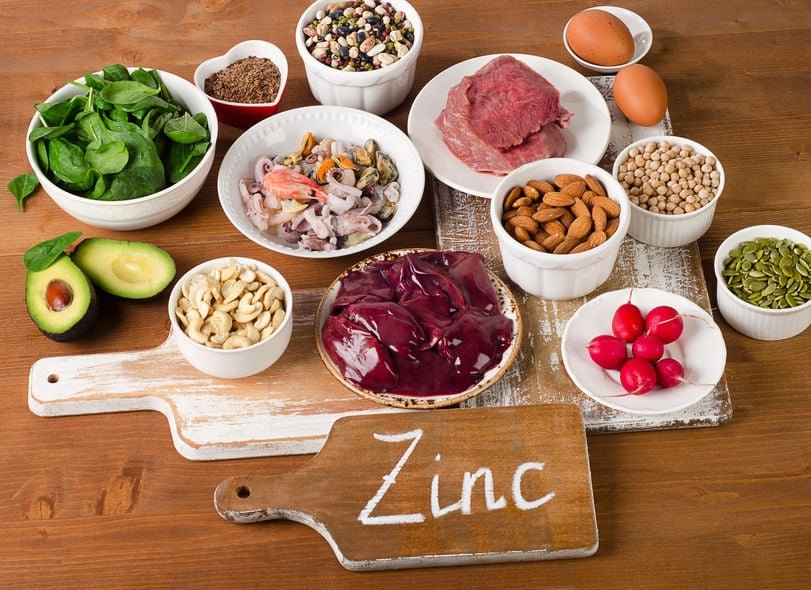Zinc, a crucial micronutrient, plays a vital role in various physiological functions, and a deficiency can manifest in several telltale signs. Recognizing these indicators is essential for early intervention and addressing potential health concerns. Here are 10 signs of zinc deficiency that should not be overlooked:
- Impaired Immune Function: Zinc is pivotal for a robust immune system. A deficiency can lead to increased susceptibility to infections, frequent illnesses, and delayed wound healing.
- Hair Loss: Zinc deficiency may contribute to hair thinning and loss. Adequate zinc levels support the health of hair follicles and prevent excessive shedding.
- Skin Issues: Skin problems like dermatitis, eczema, and acne can be linked to zinc deficiency. Zinc plays a role in maintaining skin integrity and supporting the healing of wounds and blemishes.
- Loss of Appetite: A diminished sense of taste and smell, often accompanied by a reduced appetite, can be indicative of insufficient zinc levels. This can impact overall nutritional intake.
- Delayed Growth and Development: In children, zinc deficiency can hinder normal growth and development. It is crucial for processes such as bone formation, cellular division, and overall maturation.
- Vision Impairment: Zinc is present in high concentrations in the eyes, particularly the retina. A deficiency may contribute to night blindness or other vision impairments.
- Cognitive Issues: Zinc is essential for cognitive function, and a lack of it may lead to difficulties in concentration, memory, and learning abilities.
- Hormonal Imbalance: Zinc is involved in regulating hormone production and balance. A deficiency can disrupt hormonal functions, potentially leading to issues such as menstrual irregularities and fertility problems.
- Mood Disturbances: Zinc plays a role in neurotransmitter function, influencing mood and behavior. Deficiency may contribute to mood swings, irritability, and an increased risk of depression.
- Impaired Taste and Smell: Zinc deficiency can result in a diminished sense of taste and smell. This can impact food preferences, leading to potential changes in dietary habits.

It’s important to note that these signs may vary in severity, and some individuals may experience a combination of symptoms. Additionally, certain groups are at a higher risk of zinc deficiency, including vegetarians, pregnant and lactating women, and individuals with gastrointestinal disorders that affect nutrient absorption.
Addressing zinc deficiency involves incorporating zinc-rich foods into the diet, such as meat, dairy, nuts, seeds, and whole grains. In some cases, supplementation may be recommended under the guidance of a healthcare professional.

- Digestive Issues: Zinc deficiency can contribute to digestive problems such as diarrhea and malabsorption. The gastrointestinal tract relies on zinc for proper functioning, and a lack of it can disrupt normal digestive processes.
- Joint Pain and Inflammation: Inflammatory joint conditions may be exacerbated by low zinc levels. Zinc’s anti-inflammatory properties help regulate immune responses and may play a role in managing joint discomfort.
- Decreased Libido and Reproductive Issues: Zinc is crucial for reproductive health in both men and women. Low zinc levels may lead to decreased libido, fertility issues, and disruptions in the menstrual cycle.
- Chronic Fatigue: Zinc is involved in energy metabolism, and a deficiency may contribute to persistent fatigue. Individuals with low zinc levels might experience reduced stamina and increased feelings of tiredness.
- Oral Health Problems: Zinc deficiency can impact oral health, leading to issues such as gum disease and delayed wound healing in the mouth. Maintaining adequate zinc levels supports overall dental well-being.
Recognizing these additional signs expands the spectrum of potential indicators for zinc deficiency. It’s essential for individuals experiencing any combination of these symptoms to consult with healthcare professionals for proper evaluation, diagnosis, and guidance on addressing nutritional imbalances.
While dietary adjustments and supplementation can address mild zinc deficiency, it’s crucial to emphasize the importance of balanced nutrition. A diverse and nutrient-rich diet, along with regular monitoring of zinc levels, ensures holistic well-being and helps prevent potential health complications associated with zinc deficiency.

